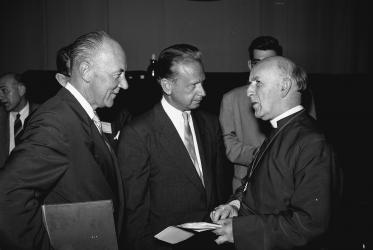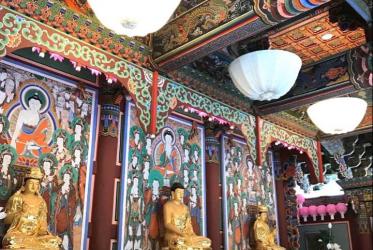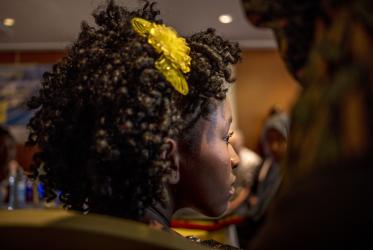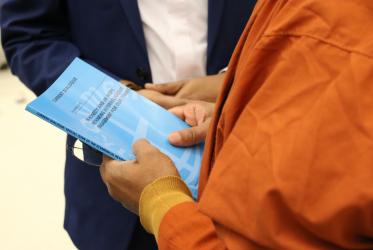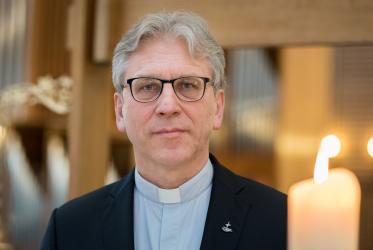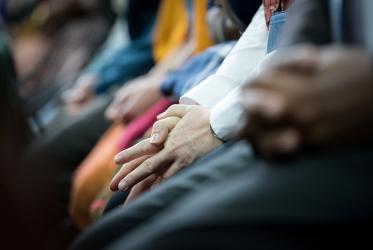Displaying 141 - 160 of 415
Vesak Day commemorated at the UN
11 May 2020
South Sudan Church leaders welcome new cabinet
15 March 2020
Freedom of religion rooted in justice
06 March 2020
Archbishop Anastasios receives Klaus Hemmerle 2020 Prize
19 February 2020
Festivities and dialogue launch new WCC journal
07 February 2020
WCC invites media to the launch of Current Dialogue
06 February 2020
WCC reiterates standpoints against antisemitism
20 January 2020
On International Human Rights Day, WCC’s work is ever-present
10 December 2019
Dialogue explores role of religions in settling conflicts
21 November 2019
